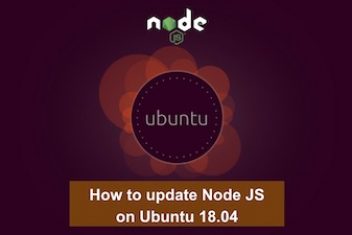Ancient myths were never just bedtime stories. They were maps for living passed down from mouth to mouth long before ink met paper.
These tales shaped entire belief systems, carved out cultural identities and set the foundation for what stories could be. Today their echoes still rumble through modern literature. The symbols, the arcs the archetypes—they never left. They only changed clothes.
Writers from across the globe have borrowed from these timeless stories without flinching. Greek tragedies pop up in suburban dramas. Norse gods find themselves reimagined in comic book pages. Even the quiet whispers of Celtic folklore creep into thrillers and magical realism. Every genre has a myth tucked somewhere in its sleeve. Whether it’s the hero’s quest the fall from grace or the reluctant saviour that old mythic spine keeps modern fiction standing upright.
Characters Borne from Ancient Roots
Modern literature is full of characters who walk straight out of the old tales even if they look different on the surface. The tragic flaw that doomed Achilles still dooms men in suits and women with secrets. The wise mentor once named Merlin or Tiresias might now be a retired detective or an old woman running a used bookshop. The masks shift but the faces beneath remain stubbornly familiar.
Writers rework these mythic figures not for nostalgia but because they still work. These characters tap into something deep and oddly comfortable like a tune that keeps playing long after the record stops. They make the fantastic feel grounded. They remind readers that while the settings change the core of human experience rarely does. In a way mythology gives modern characters bones to stand on and stories something real to wrestle with.
Common Threads in Unexpected Places
Beneath the layers of plot and prose myths keep weaving their patterns. The reluctant hero the dangerous gift the underworld journey—these show up more often than not. In dystopian fiction in fantasy in literary tales about grief or growth these old frameworks hold tight. They offer both order and risk. They allow writers to break rules while leaning on structure.
It’s not always obvious at first glance. Sometimes the myth hides behind science fiction. Other times it rides in quietly on a romance subplot. But it’s there guiding the rhythm of the tale. And when the scaffolding is strong even a story full of chaos can hold its shape.
Now and then stories borrow more than structure—they borrow mood and weight too. A sense of fate hangs over many modern books and that mood comes from the ancient belief that some things are meant to happen no matter how much the characters resist. This keeps the stakes high and the tension thick even when the setting is a city bus rather than Mount Olympus.
Here are a few examples of where myth’s long shadow lands in surprising ways:
Echoes in Dystopia
Modern dystopian novels often build worlds filled with prophecy sacrifice and chosen figures. These ideas may sound futuristic but their roots are in the oldest myths. Stories like “The Hunger Games” and “Divergent” frame their heroes as both pawns and saviours echoing tales where mortals carry divine burdens. Even the landscapes these characters cross—burned cities divided zones—mirror mythic lands of trial and transformation.
Magic in the Mundane
In literary fiction myths sneak in through metaphor. A kitchen becomes a battlefield, a family dinner a sacred rite. Writers use myth to elevate the ordinary adding layers of meaning without making the story feel unreal. In “Beloved” by Toni Morrison for instance the haunting is both literal and symbolic tapping into ancient ghost stories that reflect real trauma.
Gods in New Skins
Fantasy rarely shies away from mythology. Writers give gods new names and modern jobs but their powers and flaws stay familiar. Neil Gaiman’s “American Gods” turns forgotten deities into truckers and drifters while still exploring devotion fate and identity. It’s myth updated but not erased.
These reimaginings allow readers to experience myth without stepping into a museum. They bring the past forward invite it to speak in modern tongues. And when done well they spark something both familiar and new in the mind.
Why Myths Still Matter in a Modern World
The power of myth doesn’t fade because the need for meaning never does. In a world built on fast answers and flickering screens people still crave stories that explain the unexplainable. Myths give that. They hold a mirror to the human mess with a kind of patient clarity. They ask the same old questions but in ways that still matter.
Writers lean into this. Not because they lack imagination but because myth gives imagination a sturdy launchpad. It lets modern literature dream with its feet on the ground. That blend of wonder and weight draws both the writer and the reader into something larger than plot or setting.
And across all genres one quiet movement has helped keep those mythic echoes alive in everyday reading. Together Z lib, Open Library and Project Gutenberg shape independent reading culture by making these stories easier to reach and harder to forget. Their open shelves make room for ancient echoes to ring in modern ears.
Modern literature isn’t a break from myth—it’s its next chapter. And with every retelling every twist on an old tale the myth grows not older but deeper.
If you like the content, we would appreciate your support by buying us a coffee. Thank you so much for your visit and support.



